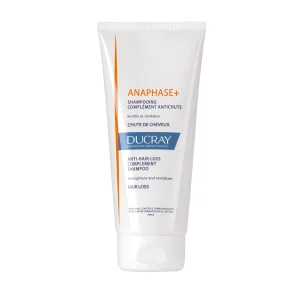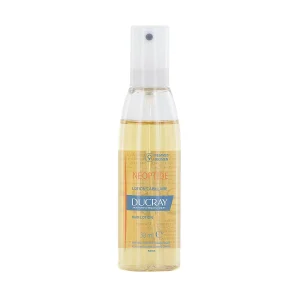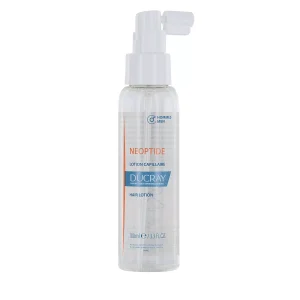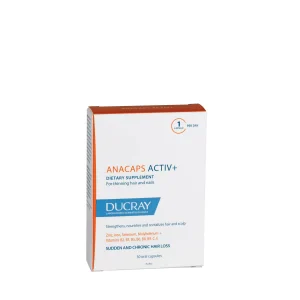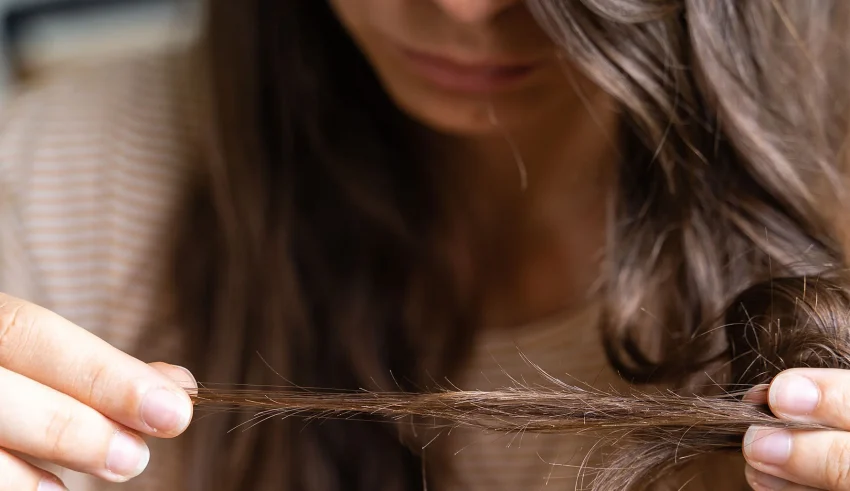
Regardless of your age or gender, it can be frustrating to deal with hair loss. There are many hair loss products on the market, which can add to the overwhelm. Treatment options can vary according to the different types of hair loss. Many medications are designed to slow hair loss, stimulate hair growth, or both. To simplify your options, The Dermo Lab reached out to the dermatologist Dr. Amaal Alruwaili, who will walk you through the different hair loss solutions, their effectiveness, and side effects.
Read on to learn more about hair loss problems and solutions!
How common is hair loss?
Hair loss, or alopecia, is very common. It can be divided into two categories:
- Scarring, which results in the permanent destruction of the hair follicles.
- Non-scarring, in which the hair follicles remain intact.
The vast majority of hair loss cases are non-scarring. These are conditions such as pattern baldness and telogen effluvium (excessive telogen hair loss), or excessive hair shedding.
The majority of hair loss in men and women is pattern baldness, also known as androgenetic alopecia. Genetic and hormonal factors play a role in this type of hair baldness.
What can cause hair loss?
- Drugs, vitamins, or minerals: drugs that treat high blood pressure, heart problems, depression, or gout; chemotherapy or radiation therapy for cancer patients; and in some cases, abnormally high levels of vitamin A or low levels of iron or protein. In women, birth control pills can also cause hair loss.
- Diseases, including thyroid disease and severe infections.
- Scalp conditions, including psoriasis, seborrheic dermatitis, and folliculitis.
- Trauma, including traction alopecia resulting from certain hairstyles that cause trauma to the hair follicles, trichotillomania, or repeatedly pulling and breaking one’s own hair.
Dr. Amaal Alruwaili adds that hormonal changes such as pregnancy, childbirth, and menopause can also lead to hair loss.
How is hair loss diagnosed?
Hair loss can have many causes, so it’s important to have it diagnosed by a doctor to find the root cause. According to Dr. Amaal Alruwaili, your dermatologist can perform a variety of tests, including a blood test, pull test, scalp biopsy, and light microscopy.
- Blood test: If doctors suspect that hair loss may be due to an underlying medical condition, vitamin or mineral deficiency, or hormonal imbalance, they may recommend one or more blood tests.
- Pull test: The doctor may perform this test by pulling a section of hair and observing the amount of hair that comes off the root.
- Scalp biopsy: If you have androgenetic alopecia, your doctor may perform a scalp biopsy to look for signs of hair follicle destruction or to perform a follicular count.
- Light microscopy: Hair light microscopy is an important clinical tool for diagnosing various disorders affecting the hair and adjacent scalp.
What are the best hair loss solutions?
1- Shampoos for hair loss
It’s important to avoid shampoos containing sulfur, which can worsen your hair loss by removing the oils from your scalp, making your hair dry and brittle. Also, don’t overuse thickening shampoos, which can clog pores, deprive the scalp of oxygen and increase inflammation.
The beneficial ingredients of a thinning hair shampoo are:
- Histidine. This amino acid absorbs excess copper from the hair, protecting it from UVA and UVB damage.
- Phyto-caffeine. Caffeine has been found to eliminate excess testosterone in the hair root. Testosterone can suppress hair growth on the scalp in both men and women.
- Niacin (vitamin B3). This vitamin promotes hair fullness. It also stimulates circulation and blood flow in the scalp.
- Biotin. Biotin is a water-soluble vitamin that belongs to the B vitamin family. This ingredient can promote hair fullness and reduce breakage.
Here’s an anti-hair loss shampoo for thinning hair that will help you achieve thicker hair.
Ducray Anaphase + Anti-Hair Loss Complement Shampoo
2- Lotions for hair loss
A lotion is one of the best solutions for hair loss because it allows the hair to stay in its growth phase longer. This means that the hair grows longer and falls out less quickly. As a result, more hair will grow at the same time. The ingredients in the hair loss lotion help stimulate the growth of your hair.
For occasional hair loss:
To slow down occasional hair loss in circumstances such as pregnancy and stress, the following lotion is exactly what you need!
Ducray Creastim Anti-Hair Loss Lotion
For chronic hair loss:
If you suffer from chronic hair loss due to hormonal or medical problems, we recommend using Neoptide Anti-Hair Loss Lotion which prevents hair loss and promotes hair growth. It is perfect for daily use thanks to its light formula and non-greasy texture. Ducray has launched two types of Neoptide Lotion: one for women and one for men.
Ducray Neoptide Anti-Hair Loss Lotion for Women
Ducray Neoptide Anti-Hair Loss Lotion for Men
3- Supplements for hair loss
The most important thing to understand about diet and supplements is that the nutritional needs of your hair are unique and incredibly high. Dr. Amaal Alruwaili notes that the best diet to reduce hair loss includes foods such as carrots, prunes, shrimp, nuts, and eggs.
Since hair cells are the second-fastest-growing cells produced by the body, this means that strands need a constant supply of energy to grow, and it can be difficult to get all the nutrients they need through diet alone. Therefore, supplements can be very helpful, as they provide an extra supply of readily available vitamins and minerals, but you should always combine the two.
We recommend the following vitamins for hair loss which will stimulate hair growth.
Ducray Anacaps Food Supplements
4- Hair loss medications
Hair loss medications include oral pills and topical formulas. They are available by prescription or over the counter. Dr. Amaal Alruwaili recommends Minoxidil and Finasteride for hair loss.
- Minoxidil
Minoxidil can be useful for male and female-pattern hair loss. It is most effective in men or women with general thinning of the hair. Minoxidil formulas usually consist of liquids, foams, and shampoos. It takes at least 4 months to see results.
- Finasteride
Finasteride is a hair loss medication for men. It is a prescription medication that is taken orally. It is also available in some prescription products to be applied topically.
This hair loss medication can be used to treat androgenic alopecia and hair loss in men. Finasteride can be used to slow hair loss and help stimulate hair growth in men.
Other medications used include spironolactone and dutasteride. Spironolactone works by slowing down the male hormones called androgens, including testosterone. Dutasteride works in the same way as finasteride.
What are the medical procedures for hair loss?
Dr. Amaal Alruwaili indicates that hair transplant surgery and laser therapy can help treat hair loss.
*Hair transplant surgery:
Hair transplants are performed to add hair to an area of your head that may be thinning or bald. Hair is taken from thicker parts of the scalp or other parts of the body and transplanted into the part of the scalp that is thinning or becoming bald.
The most common side effect is scarring, which cannot be avoided.
Other potential side effects include:
- infections
- crusting or pus discharge around surgical sites
- pain, itching, and swelling of the scalp
- inflammation of the hair follicles
- bleeding
- loss of sensation around surgical sites
*Laser therapy:
Low-level laser therapy radiates photons into the scalp tissue. These photons are absorbed by weakened cells to promote hair growth. Laser treatments revive the circulation and encourage hair follicles to grow hair. It is widely accepted that this procedure is safe, tolerable, and less invasive than hair transplant surgery.
The procedure appears to be less effective for people in the advanced stages of hair loss than for those in the early stages. The advantage of laser treatment is that it is non-invasive, painless, and has no side effects.
Last Updated on April 16, 2024

